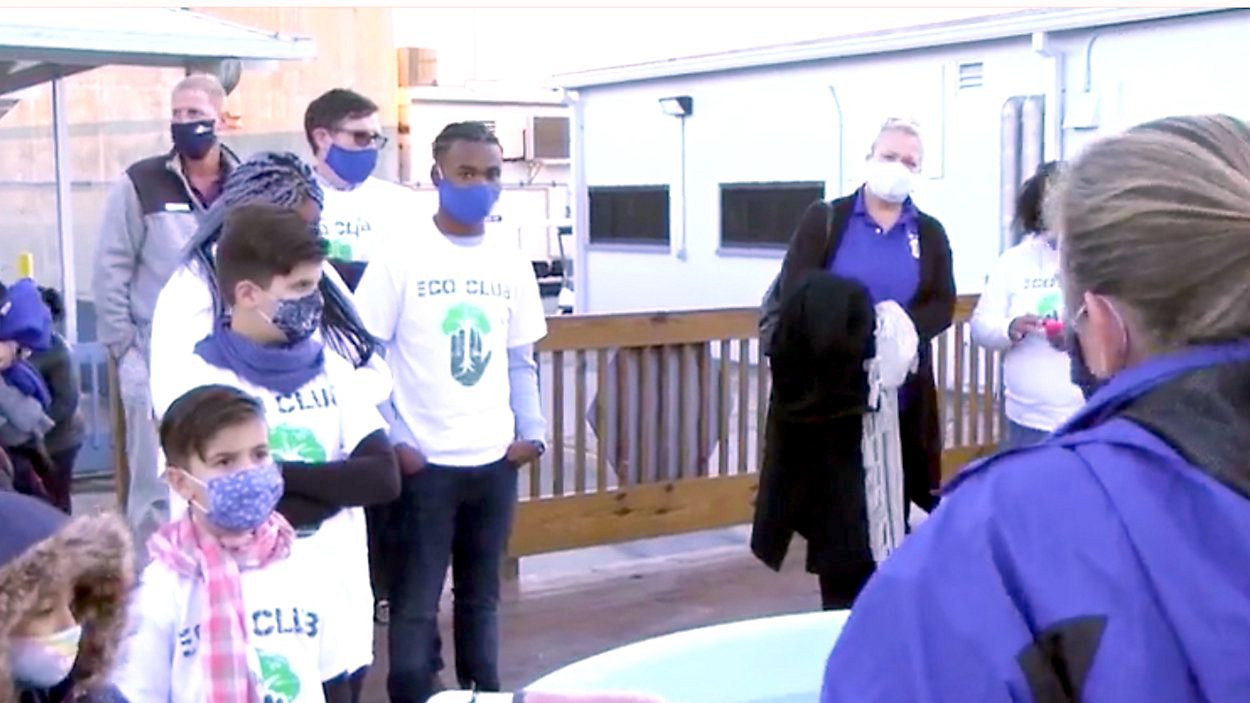ORLANDO, Fla. — Students at Orlando’s Westridge Middle School have maintained a four-year partnership with SeaWorld Orlando, and they appear excited to say they just sweetened it.
What You Need To Know
- Students at Westridge Middle donate 5 gallons of honey to SeaWorld
- Westridge Middle School started unique beekeeping program this year
- SeaWorld: “Natural antibiotic” for injured animals “is huge for us”
Through an Eco Club afterschool program, Westridge students in recent days donated to SeaWorld five gallons of raw honey that they harvested on campus as part of a unique beekeeping program at the school. SeaWorld says it will use the honey as a natural antibiotic and treatment for injured animals such as turtles and manatees.
“It definitely feels good to see your product be given somewhere for a good cause,” said Marcus Williams, a student at Westridge Middle School.
Marcus made his comments in a video shared courtesy of SeaWorld Orlando and Westridge Middle School.
Teacher Joshua Garrett said in the video that the school brought bees on campus in June and introduced beekeeping classes at the beginning of this school year.
Westridge students harvested their first “major amount” of honey in October and November, Garrett said. He said participants told SeaWorld that they wanted to donate the honey, which the theme park says it enthusiastically accepted as part of its mission to rescue and care for sick, injured and orphaned marine animals.
“This natural antibiotic and natural treatment is huge for us, and without these hives and the ability to get raw honey, we wouldn’t be able to rescue and care for as many animals as we do,” said Jon Peterson, vice president of zoological operations at SeaWorld Orlando, in the video.
Animal-care workers can apply the honey to the wound of a manatee cut by a boat propeller, for example. The honey stays on in the water and “actually helps the healing process,” Peterson said.
Westridge Middle School says its apiculture, or beekeeping, program aims to help engage students in efforts to increase bee populations. Their decline in recent years has alarmed scientists because of the role of bees in the pollination and production of multiple crops.
The efforts of Westridge Middle School’s students stand as an extension of their work at Millennia Gardens Elementary School. The Eco Club began at Millennia Gardens — a feeder school to Westridge — in 2016 and expanded last year to Westridge.
It addition to its long partnership with SeaWorld Orlando, the Eco Club touts having built bat houses with the University of Florida and mats for oyster reefs with the University of Central Florida.
Because he attended Millennia Gardens Elementary and now attends Westridge Middle School, Marcus Williams said he has remained an Eco Club member since its inception.
“It is cool to see how we’ve gone … to middle school and we’ve been able to build up our relationship with SeaWorld and see our product help different animals,” he said. “Honestly, it feels good.”
As for beekeeping, Westridge Middle School says it relies on the advice of a professional beekeeper. Students undergo a safety course and wear beekeeping suits when near the hives, the school says.
“It’s definitely fun. It’s really just maintenance,” Marcus said, adding about the hives: “You go in and you clean it out and make sure all of the bees are all right. They’re not really too much to take care of.”



